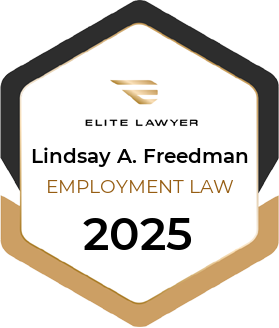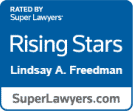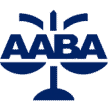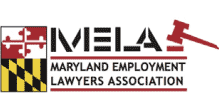Joint Employees and Harassment: Who Is Responsible?
 Today’s workplaces can be more complex than ever. Temp workers, subcontractors, franchise employees, and staffing-agency placements often answer to more than one boss and may operate under joint-employment arrangements. This means that two or more entities control different aspects of the employee’s work.
Today’s workplaces can be more complex than ever. Temp workers, subcontractors, franchise employees, and staffing-agency placements often answer to more than one boss and may operate under joint-employment arrangements. This means that two or more entities control different aspects of the employee’s work.
So, what happens and who is legally responsible when workplace harassment occurs? Is the staffing agency liable? The host employer? The parent corporation? The franchise owner? Or is it all of these entities? If you have experienced harassment in a joint employment situation, you may rightfully feel trapped. Who do you report the behavior to?
Meanwhile, each employer may be doing their best to shift blame to the other, leaving you unsure of your rights. Understanding how joint employment affects workplace harassment claims is essential for workers and employers navigating the modern workforce. A Fairfax, VA employment attorney can help you determine who is liable for the harassment you have suffered in the workplace.
What is a Virginia Joint Employee?
A joint employee works under the direction or control of more than one entity. This arrangement is common in:
- Shared worksites (construction, warehouses, healthcare)
- Gig or platform-based work
- Franchise or micro-franchise operations
- Subcontractor labor
- Staffing and temp agency placements
Each "employer" could be responsible for wages, supervision, scheduling, safety, or HR policies, and this shared control also brings shared liability.
Who is Responsible for Workplace Harassment for Joint Employees?
The entities that may be responsible when an employer experiences harassment in the workplace include:
The On-Site or Host Employer
Even if the worker is not on the host company’s payroll, the host could be liable when its own supervisors allow or participate in harassment, its employees create a hostile environment, or its managers fail to report or correct harassment. Further, if the host employer’s policies are ignored or inconsistently applied, the host employer could be liable. Courts will look at control over daily work when determining liability.
Staffing Agencies or Labor Providers
Staffing agencies can be liable if they fail to investigate a complaint, retaliate once a worker reports harassment, or return a worker to the same environment without remediation. A staffing or temp agency may not ignore patterns of abuse at a host location, and even without an on-site presence, agencies must take reasonable corrective actions under Title VII and state human rights laws.
The Franchise Owner or Parent Company
The franchisee (local owner) is generally liable for on-site harassment, although the franchisor (parent brand) may be liable if it exercises significant operational control, including discipline authority, hiring and firing power, training requirements, or uniform HR policies. Courts will analyze whether the parent company’s control went beyond brand protection.
Subcontractors and General Contractors
Construction and industrial worksites often have "layered" responsibilities. General contractors could be liable for harassment by their supervisors or workers, even when the victim works for a subcontractor. The subcontractor could be liable if their employee engages in harassment toward another company’s workers. The court will determine liability based on control, oversight, and failure to remedy the situation.
Multiple Employers
In many joint employment harassment cases, two or more employers may share liability if one entity created the hostile environment and the other failed to take corrective action. Joint liability ensures victims of harassment are not left unprotected in complex work arrangements.
What Will the Courts Consider in Joint Harassment Cases?
The court will consider who controlled the worker’s day-to-day duties and who had the power to address the harassment. When multiple handbooks or training systems apply, both employers may share the responsibility. If a poorly performed or biased investigation occurred, then it exposes that company to liability. Finally, failure to act is one of the strongest indicators of liability, so if either company ignored the complaints, they are likely to be found liable.
Contact an Arlington, VA Employment Law Attorney
If you are a temp worker, subcontractor, franchise employee, or staffing agency placement facing harassment, you can get justice. A highly skilled Fairfax, VA harassment claims lawyer from Freedman Law, LLC can help identify the responsible party and pursue maximum compensation on your behalf. Attorney Freedman is rated one of the best employment law attorneys in Annapolis, MD. He is very hands-on, supportive, and aggressive when necessary. Call 410-290-6232 to schedule your initial attorney meeting.













